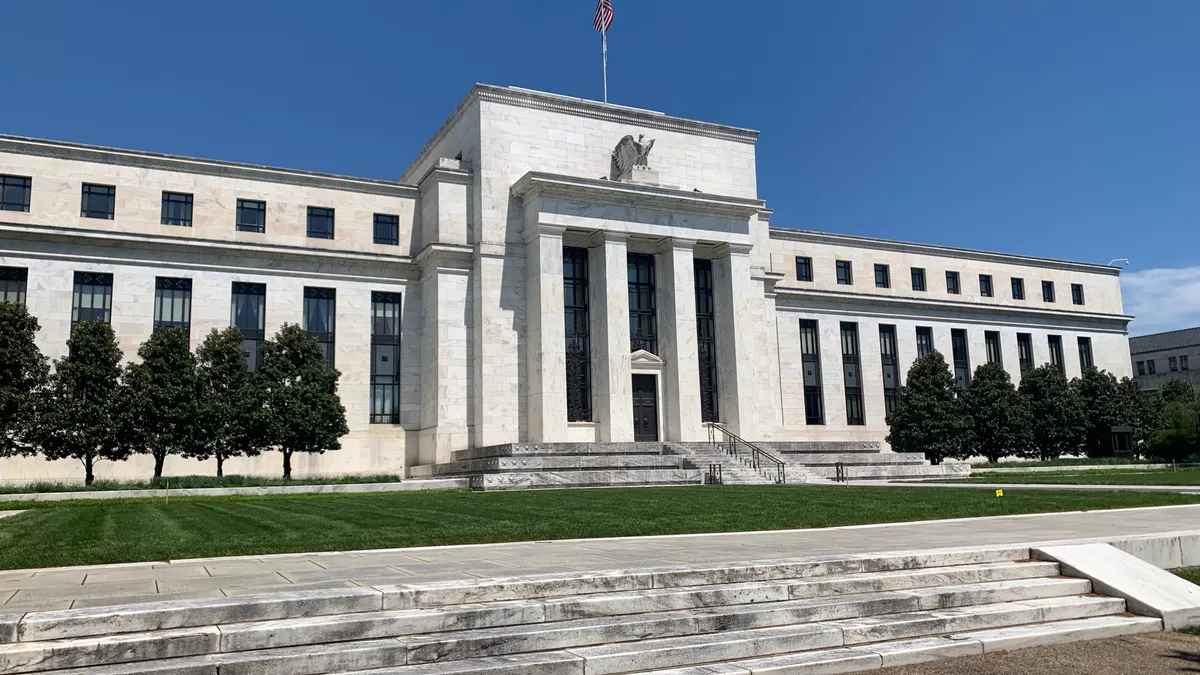Dive Brief:
- The Federal Reserve on Friday published a list of firms that have access or are seeking access to the central bank’s master accounts and payment services.
- The Fed, which said it is making the list public in an effort to promote transparency, said it will update the database on a quarterly basis.
- The move follows calls from Republicans for the central bank to shed light on the process by which it grants master accounts, and comes as an increasing number of uninsured firms are vying for access to the Fed’s system.
Dive Insight:
The Fed’s publication of the database follows a federal mandate that the central bank create and “maintain a public, online and searchable database” of entities that have, or that are requesting, account and service access.
Former Sen. Pat Toomey, R-PA, who often claimed the central bank lacks accountability, inserted the provision into last year’s defense spending bill.
The database lists firms that have access to the central bank’s master accounts and services, and those that have requested access after Dec. 23, or had a request pending on that date, as well as the status of each request, the Fed said.
In a series of tweets Friday, Custodia Bank CEO Caitlin Long, noted the number of firms listed in the Fed database that lack deposit insurance.
“HOLY COW, does this database of Fed master account holders ever raise a lot of questions,” wrote Long, whose Cheyenne, Wyoming-based digital asset bank is suing the Fed over an “unlawful delay” to its request for a master account. “The list of uninsured financial institutions that have Fed master accounts is 21 pages long & I've spotted several that may not even have been eligible for one!”
According to the database, 414 current master account holders do not have federal deposit insurance.
The Fed cited Custodia’s lack of deposit insurance as one of several shortcomings that resulted in the rejection of its application in January.
“NO WONDER WHY THE FED FOUGHT SO HARD TO KEEP THIS LIST SECRET for so many years, until Congress forced it to release the list,” she wrote in a separate tweet.
More than two dozen institutions have submitted applications for a Fed master account, and 20 are not federally insured, according to the list.
Republicans last year raised the issue of the Fed’s master account process during the nomination hearing for Sarah Bloom Raskin, a former candidate to serve as the central bank’s vice chair for supervision.
Sen. Cynthia Lummis, R-WY, implied that Raskin used her influence as a recent Fed governor to help the fintech Reserve Trust gain a Fed master account.
The Federal Reserve Bank of Kansas City denied Reserve Trust’s first application for a master account in June 2017, a month after Raskin joined the fintech’s board.
Lummis said the fintech was granted a Fed master account after Raskin called the Kansas City Fed in August 2017 about the denied application.
Raskin eventually withdrew her nomination after failing to garner sufficient support in the Senate.











